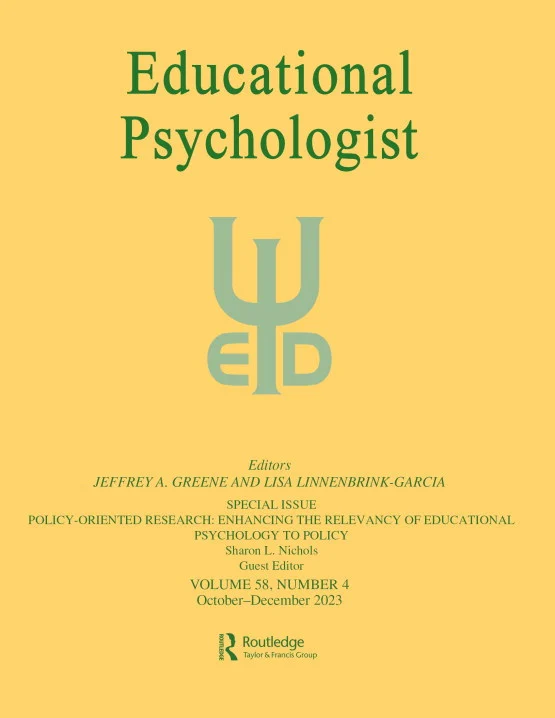在线教学的支柱:在线学习环境中的教学框架
IF 11.4
1区 心理学
Q1 EDUCATION & EDUCATIONAL RESEARCH
引用次数: 53
摘要
向在线学习的不断转变给教师带来了新的期望,包括将内容知识与利用技术支持的引人入胜的教学策略相结合所需的技能。因此,在线教学在现代学校中变得越来越重要。挑战在于理解在线教学的本质,教师在在线环境中取得成功所需的技能,以及围绕这些技能为何至关重要的理论基础。本文揭示了在线教学的基本组成部分,包括以学习者为中心、建构主义和情境学习原则为基础的五大支柱。这些支柱包括(a)建立关系和社区,(b)纳入主动学习,(c)利用学习者代理,(d)接受掌握学习,以及(e)个性化学习过程的能力。我们描述了他们的理论基础,讨论了相关文献,并考虑了对教师教育的影响,以及随后对教育技术、教育心理学和学习科学的学术影响。本文章由计算机程序翻译,如有差异,请以英文原文为准。
Pillars of online pedagogy: A framework for teaching in online learning environments
Abstract The growing shift toward online learning has brought new expectations for teachers, including skills needed to combine content knowledge with engaging pedagogical strategies that leverage the affordances of technology. As a result, online pedagogy has become increasingly relevant in modern-day schools. The challenge is understanding the nature of online pedagogy, the skills needed for teachers to succeed in online settings, and the theoretical underpinnings surrounding why these skills are essential. This article unpacks the foundational components of online pedagogy, comprised of five pillars grounded in the principles of learner-centeredness, constructivism, and situated learning. These pillars include the ability to (a) Build Relationships and Community, (b) Incorporate Active Learning, (c) Leverage Learner Agency, (d) Embrace Mastery Learning, and (e) Personalize the Learning Process. We describe their theoretical underpinnings, discuss related literature, and consider implications for teacher education with subsequent implications for scholarship across educational technology, educational psychology, and the learning sciences.
求助全文
通过发布文献求助,成功后即可免费获取论文全文。
去求助
来源期刊

Educational Psychologist
Multiple-
CiteScore
19.10
自引率
3.40%
发文量
16
期刊介绍:
The Educational Psychologist is a scholarly journal dedicated to exploring the psychology of learning and instruction. Articles in this journal encompass a diverse range of perspectives, from examining psychological mechanisms to exploring social and societal phenomena related to learning and instruction. The journal publishes theoretical and conceptual articles, as well as reviews and meta-analyses, that significantly contribute to theory or advance the methods used to explore educational psychology. Emphasizing innovation and advancing understanding, the journal does not publish articles solely reporting the methods and results of empirical studies; instead, all submissions, including reviews and meta-analyses, must offer clear implications for advancing theory. In addition to regular articles, the journal features special issues that delve into important themes in educational psychology, along with focal articles accompanied by peer commentary.
 求助内容:
求助内容: 应助结果提醒方式:
应助结果提醒方式:


